1-0056 

1-0056 

- "Where is the bag outlet?" "On the fifth floor."
- ございます:"あります "的郑重语表达,语气更加谦恭和客气。
- いらっしゃいます:The honorific expression for "います".
- Oru: A self-effacing expression for [いる].
2-0057 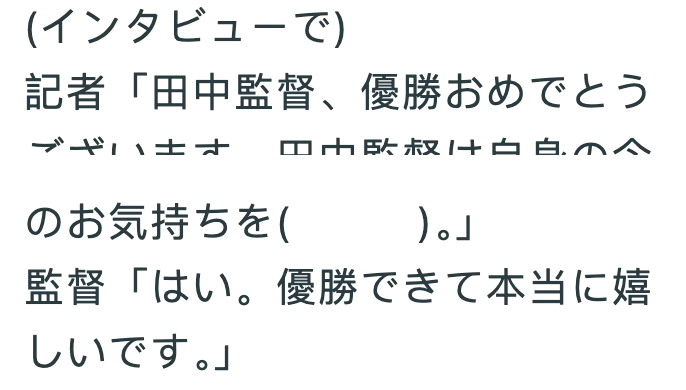

2-0057 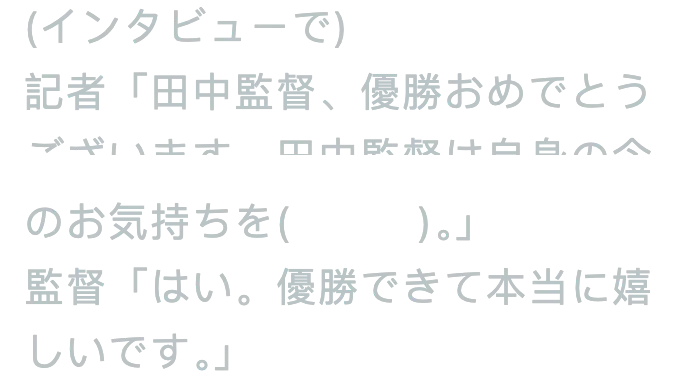

- (Interview in progress)
- Reporter "Coach Tanaka, congratulations on your win. Can you please tell us how you feel right now?"
- Coach "Okay, it's really nice to win."
- お/ご+动词连用形/三类动词词干+願えませんか:Can you please ......? A more polite expression of respect when asking someone to do something.
3-0058 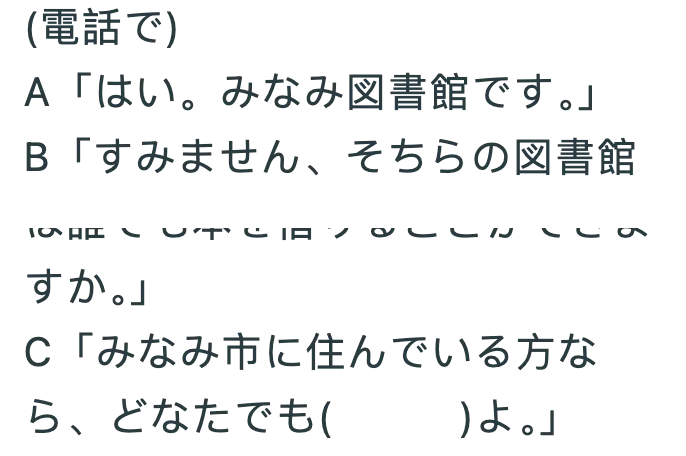

3-0058 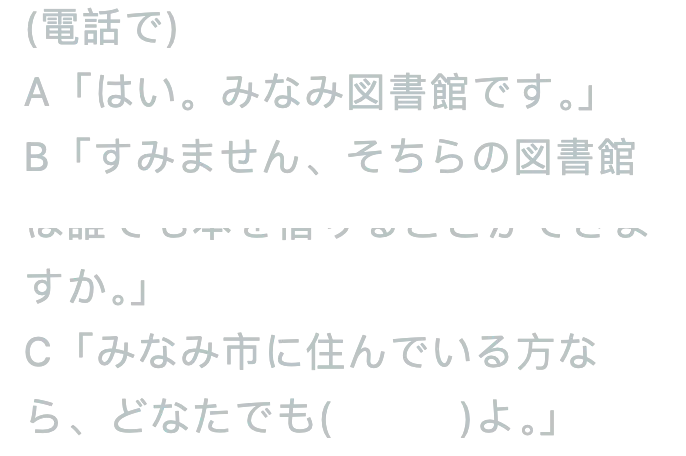

- A "Hello, this is the Minami Library."
- B "Excuse me, is this library where anyone can borrow books?"
- A "Anyone who lives in Minami City can borrow it."
- 借りられます:Passive expression of "借りる" to show respect to superiors, honored elders or guests.
4-0059 

4-0059 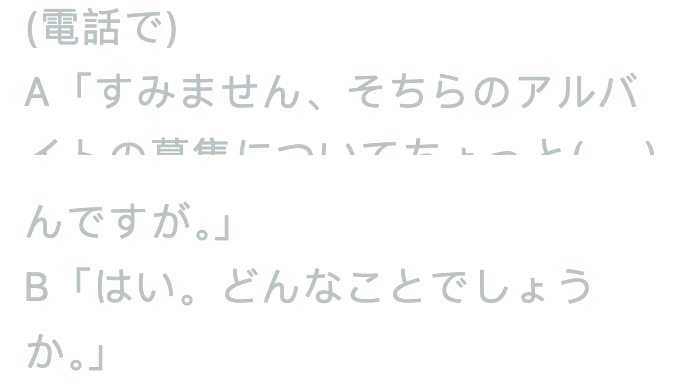

- (ON PHONE)
- A "Excuse me, I'd like to ask a question about recruiting temporary workers."
- B "Uh-huh. (Specifically) what is it about?"
- Wait for it: I want to ask for advice. 「伺う」is the self-effacing form of 「聞く」.
- Itadakitai: wanting to
- Leave a message: You want to see it?
- お聞きになりたい:You want to ask
5-0060 

5-0060 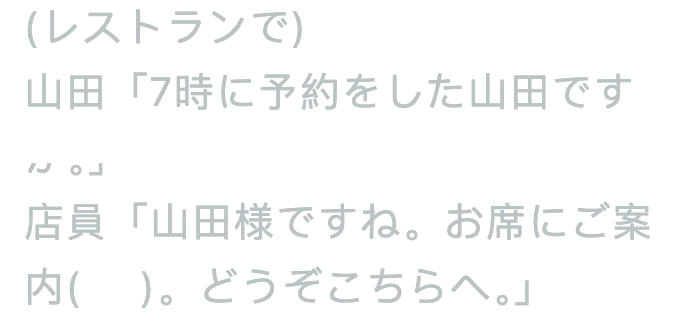

- (in the cafeteria)
- Yamada I made a reservation for Yamada at 7:00 pm.
- The clerk, Mr. Yamada, right? I'll show you to your seat. This way, please.
- Itashimasu: "お/ご~いたします" indicates self-effacement. The "案内" is the shopkeeper's own behavior, and you cannot use honorifics for yourself.
- 参ります:come, go. A self-effacing expression for "行く" and "来る".
- なさいます: The honorific for "する".
- Kudasaimasu: A respectful term for "くれる".










